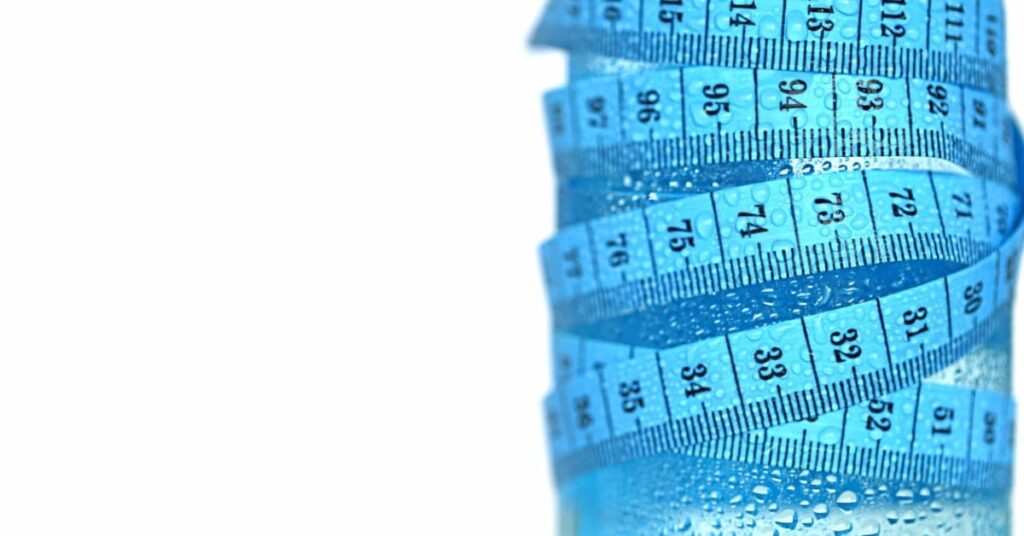Table of Contents
Introduction
It is a natural compound found in the body, primarily in the muscles, that allows the body to produce energy during high-intensity exercise or heavy lifting.
It is also a supplement that can help improve strength, muscle mass, and athletic performance. It does this by growing the body’s ability to produce adenosine triphosphate (ATP), which provides energy to cells.

Creatine
Creatine is a compound that arrives from three amino acids. It is a compound synthesized in the body from three amino acids: L-arginine, glycine, and L-methionine. These amino acids are used in a two-step process to create creatine, primarily in the liver, kidneys, and pancreas. It is found mainly in the body’s muscles and the brain. Most individuals get it through seafood and red meat, though at levels far below those in synthetically made supplements.

Does creatine make you gain weight?
Creatine may cause weight gain through temporary water retention or long-term muscle growth, but it doesn’t directly increase fat mass.
It is an amino acid naturally found in skeletal muscle and provides energy to your cells.
It’s often consumed as a supplement because it can help improve exercise performance and build muscle mass, strength, and power.
Sometimes, creatine supplementation may cause weight gain, but studies have found that this isn’t due to an accumulation of fat mass.
Instead, creatine weight gain is due to water retention and increases in muscle mass.
In fact, some research suggests that creatine supplementation combined with resistance training may contribute to lower levels of fat mass.
Please keep reading to learn more about how you might experience creatine weight gain and how to manage or reverse it.
Does creatine make you gain muscle? Or does creatine make you gain weight?
It depends. Research shows that regularly taking creatine, weightlifting, and exercising may help increase muscle growth in people aged 18 to 30. However, there isn’t enough research to say that creatine assists in developing muscle growth in people older than 65 or with diseases affecting their muscles.
Please keep reading to learn more about how you might experience creatine weight gain and how to manage or reverse it.
Does creatine make you gain weight? Two Powerful Factors

1. Water weight
Some people report feeling “plump,” “bloated,” or “swollen” shortly after starting creatine supplementation. While some think this is due to fat increases, it’s related to short-term water retention.
Creatine draws water into your muscles to provide them with energy. Although creatine is naturally produced in the body, most people’s creatine stores are only 60% to 80% complete.
Many people do a creatine loading phase when they begin creatine supplementation. This involves taking higher amounts of creatine for 5 to seven days to saturate your muscles with creatine and maximize creatine stores.
According to the (ISSN) International Society of Sport Nutrition, a creatine loading phase is often responsible for short-term weight gain because your muscles temporarily retain up to 1 liter of water.
Your muscles will hold onto this water, resulting in bloating or puffiness around your arms, legs, or stomach. Your muscles may appear bigger, even if you’ve just begun training.
2. Muscle mass
Despite causing some water weight gain, research has consistently found that creatine supplementation can help increase muscle mass, size, and strength.
Over time, increases in muscle mass can lead to weight gain on the scale, even if your waist circumference hasn’t changed or you appear leaner or more muscular. Skeletal muscle mass is denser than fat and water, so it weighs more when comparing volume size, but not in weight units.
You may also be concerned regarding non-muscle weight gain, that is, fat. But despite a seemingly rapid increase in weight, research suggests that creatine supplementation doesn’t increase fat mass.

Does creatine make you gain belly fat?
No, creatine does not directly cause or impact belly fat gain; any initial weight gain is primarily due to water retention or maintenance in muscle cells, a beneficial effect which makes muscles look fuller. In the long term, creatine supports increased muscle mass and better workout performance, which can lead to improved body composition & fat loss when combined with regular exercise & a healthy diet.
Fat mass is primarily caused by consuming more calories than you burn each day over time. This is known as a calorie surplus. A standard 5-gram (g) serving of creatine monohydrate contains no calories, so it’s unlikely to contribute to your total energy expenditure.
Why you might think creatine causes fat gain:
- Water Retention:
It draws water into the muscle cells, and leading to increased water weight. This can cause a temporary feeling of bloating or a slight increase on the scale.
- Muscle Fullness:
This water retention also makes your muscles look bigger and more “pumped up,” which some individuals mistake for fat gain.
How creatine actually works with your body:
- Increased Muscle Mass:
Creatine improves strength & endurance, allowing you to train harder and longer, leading to greater lean muscle gains over time.
- Improved Body Composition:
With increased muscle mass & better workout performance, creatine can actually help with fat loss and improve your overall body composition, not hinder it.
Does creatine make you lose weight?
No, creatine does not directly cause you to lose weight, and may cause a temporary increase in body weight or fat due to water retention in muscles. However, when combined with resistance training, creatine can support fat loss indirectly by fueling better workouts, building muscle, increasing metabolism, and helping to preserve lean muscle mass during a calorie deficit.
How Creatine Supports Body Composition
- Enhanced Muscle Growth:
Creatine assists muscles in recovering and growing stronger, increasing overall muscle mass.
- Increased Metabolism:
More muscle mass burns much calories at rest, which can boost your metabolism and help with fat loss over time.
- Fat Loss During Calorie Deficit:
Creatine, especially with resistance training, can help prevent muscle loss when losing fat.
- Improved Workout Performance:
Creatine provides more muscle energy, allowing for more intense and effective workouts, aiding fat loss.
Does creatine give you energy?
Yes, creatine provides a quick burst of energy by helping your muscles produce more adenosine triphosphate (ATP), and the primary energy source for muscle cells during high-intensity exercise. It increases the body’s phosphocreatine stores, which rapidly regenerate ATP. Therefore, it enhances performance in power-based activities but doesn’t increase endurance or provide long-lasting energy.
Does creatine make you gain weight? If you don’t work out
Creatine, an amino acid naturally or automatically found in skeletal muscle, may cause weight gain through temporary water retention or long-term muscle growth. Still, it doesn’t directly increase fat mass. It provides energy to cells.
How much weight can you gain or acquire from creatine in a month?
You can gain 2 to 6.5 pounds (approximately 1 to 3 kg) in the first month of creatine use, with most of this initial weight gain coming from water retention. This water is drawn into muscle cells by creatine, making muscles appear fuller. Over more extended periods (up to 3 months), some of this water weight may be accompanied by increased lean muscle mass, though significant muscle gain requires a consistent resistance training program.
How much weight can you gain or acquire from creatine in a year?
You can expect a weight gain of roughly 2-6 pounds in the first month from creatine, primarily due to water retention. There is potential for more lean muscle mass gain (around 2-4 pounds) over 12 weeks in conjunction with resistance training. The total long-term gain in a year depends on many factors, including your training, diet, and individual response. Still, continued resistance training can lead to significant increases in lean muscle mass.

Does creatine cause hair loss?
No, there is no strong clinical evidence to prove that creatine directly causes hair loss, with a 2025 study finding no significant impact on hair follicle health or DHT levels. While an initial 2009 study suggested a potential link due to increased dihydrotestosterone (DHT) levels, this was not confirmed by larger or later studies, and the effect was likely within the normal range and not sufficient to cause hair damage, especially for those not genetically predisposed to hair loss.
Creatine side effects
Creatine is a relatively safe supplement. However, side effects may include:
- Weight gain is due to water retention.
- Dizziness.
- Nausea and vomiting.
- Diarrhea.
- Excessive sweating (hyperhidrosis).
If you develop any of these side impacts after taking creatine, divide the quantity you take each day into smaller doses and take these smaller doses throughout the day instead of all at once.
Is creatine weight gain permanent?
No, due to water retention in the muscles, the initial weight gain from creatine is not permanent and will stabilize over time. However, the increased lean muscle mass resulting from consistent creatine use alongside resistance training can be long-lasting, provided you continue to train, fuel your body correctly, and maintain your creatine levels.
What is the weight gain?:
- Water retention:
Creatine pulls water directly into the muscle cells, and making them look fuller. This is harmless, normal intracellular water retention, not fat gain.
- Not fat:
Creatine contains no calories and does not contribute to fat gain; increasing muscle mass can boost your resting metabolic rate, aiding in fat loss.
How long does it last?
- Temporary water weight:
The initial weight increase from water retention usually stabilizes within the first few weeks of starting creatine supplementation.
- Muscle gains:
The lean muscle gains from consistent training, which creatine supports, can be sustained.
What to do to keep the gains:
- Consistent training:
You must continue your resistance training routine to build and maintain muscle.
- Proper nutrition:
Ensure you are fueling your body with appropriate nutrients to support muscle growth.
- Maintain creatine levels:
If you want to keep the benefits of increased performance and strength, you should continue to take a maintenance dose of creatine.
Conclusion
Does creatine make you gain weight? Creatine may cause weight gain through temporary water retention or long-term muscle growth, but it doesn’t directly increase fat mass.
It is an amino acid naturally found in skeletal muscle and provides energy to your cells.




